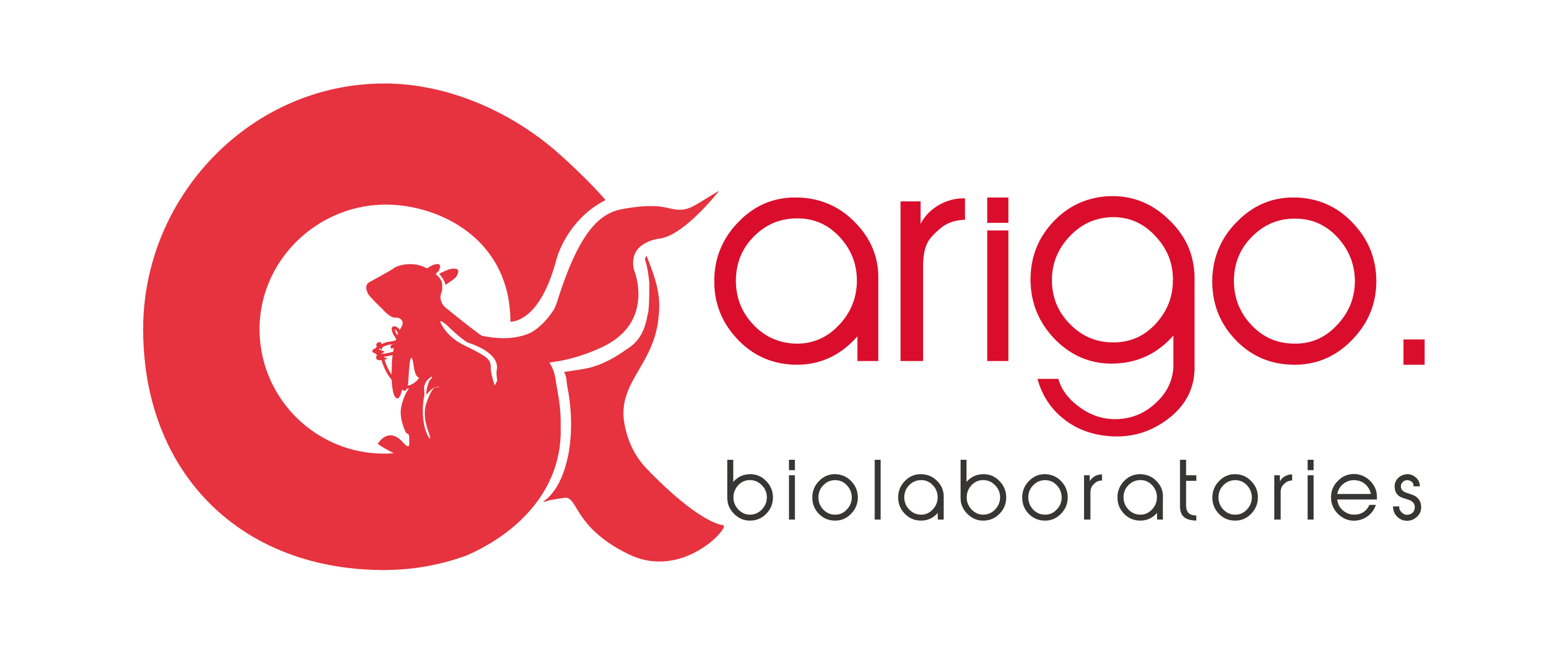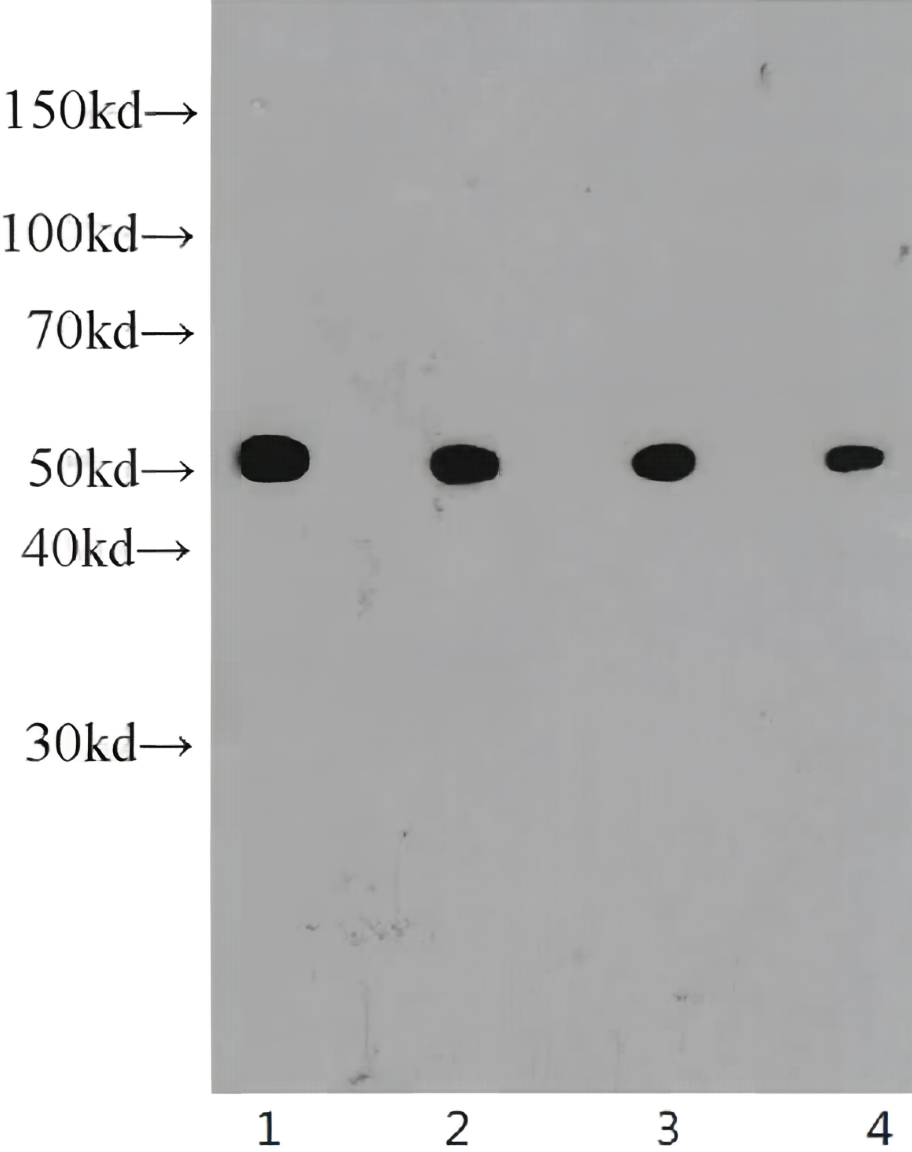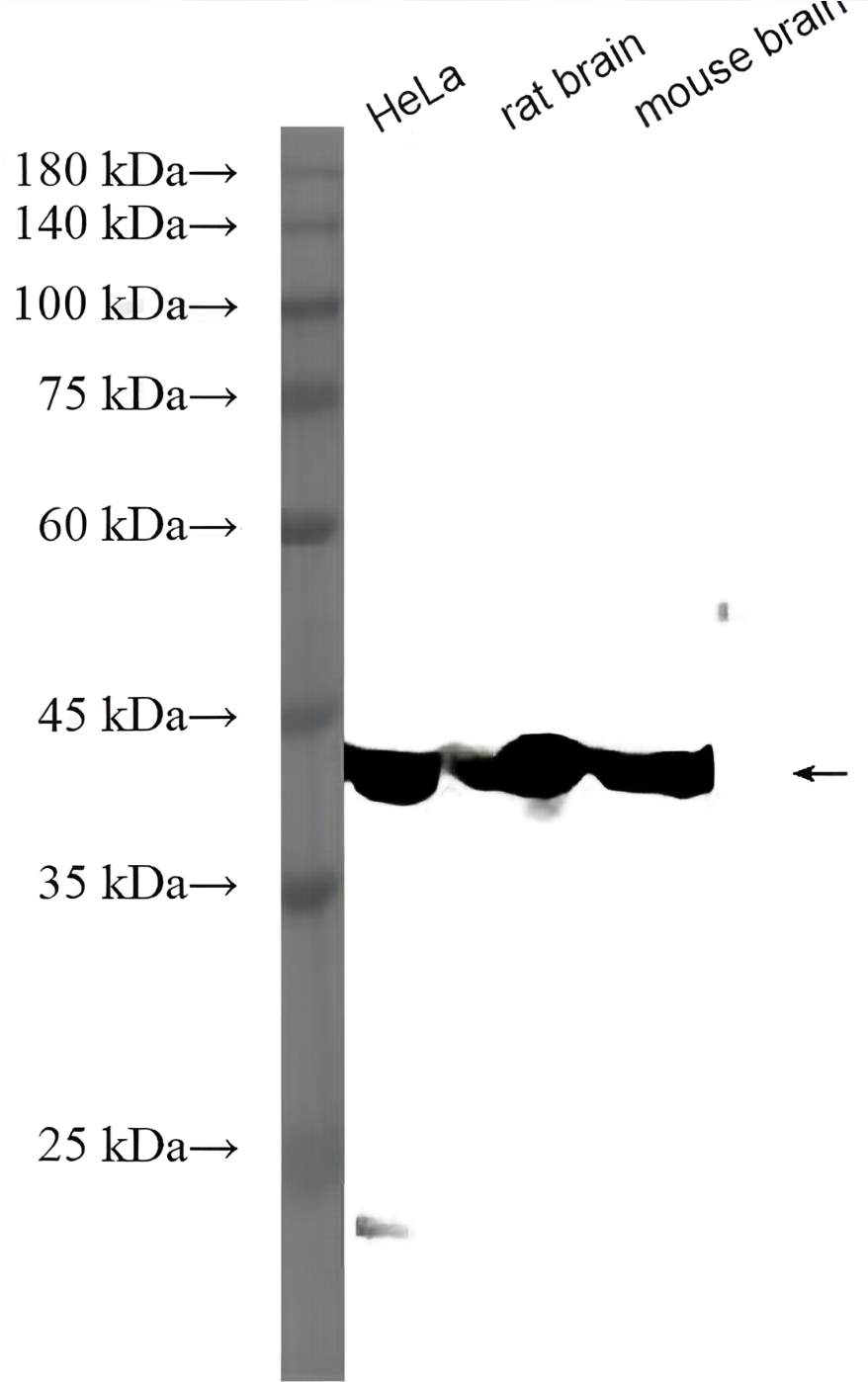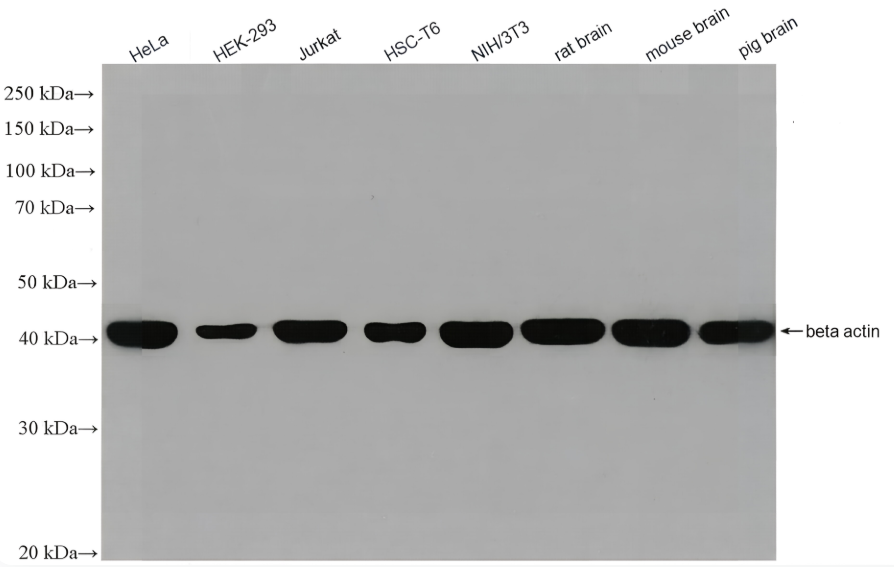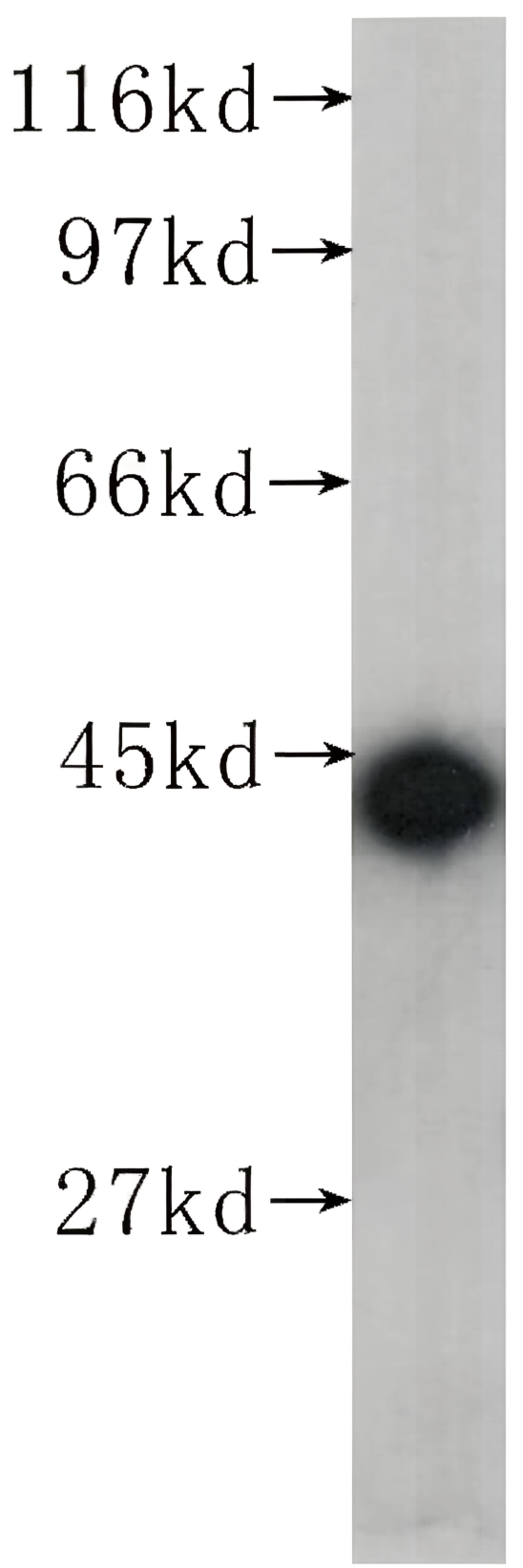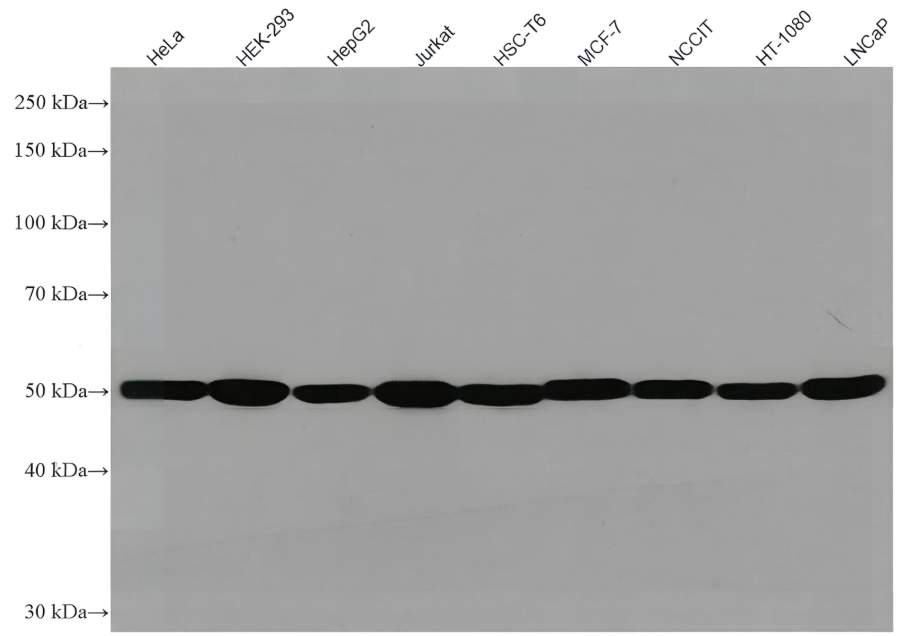anti-STS / Arylsulfatase C antibody
CAT.NO. : ARG64356
US$ Please choose
US$ Please choose
Size:
Trail, Bulk size or Custom requests Please contact us
*产品价格可能会有所调整,请以品牌方官网实时更新的价格为准,以确保准确性。
概述
| 产品描述 | Goat Polyclonal antibody recognizes STS / Arylsulfatase C |
|---|---|
| 反应物种 | Hu |
| 应用 | WB |
| 宿主 | Goat |
| 克隆 | Polyclonal |
| 同位型 | IgG |
| 靶点名称 | STS / Arylsulfatase C |
| 抗原物种 | Human |
| 抗原 | C-QAGQKIDEPTSN |
| 偶联标记 | Un-conjugated |
| 別名 | XLI; ARSC; Steroid sulfatase; SSDD; Steryl-sulfate sulfohydrolase; ASC; Steryl-sulfatase; Arylsulfatase C; EC 3.1.6.2; ARSC1; ES |
应用说明
| 应用建议 |
| ||||
|---|---|---|---|---|---|
| 应用说明 | WB: Recommend incubate at RT for 1h. * The dilutions indicate recommended starting dilutions and the optimal dilutions or concentrations should be determined by the scientist. |
属性
| 形式 | Liquid |
|---|---|
| 纯化 | Purified from goat serum by ammonium sulphate precipitation followed by antigen affinity chromatography using the immunizing peptide. |
| 缓冲液 | Tris saline (pH 7.3), 0.02% Sodium azide and 0.5% BSA |
| 抗菌剂 | 0.02% Sodium azide |
| 稳定剂 | 0.5% BSA |
| 浓度 | 0.5 mg/ml |
| 存放说明 | For continuous use, store undiluted antibody at 2-8°C for up to a week. For long-term storage, aliquot and store at -20°C or below. Storage in frost free freezers is not recommended. Avoid repeated freeze/thaw cycles. Suggest spin the vial prior to opening. The antibody solution should be gently mixed before use. |
| 注意事项 | For laboratory research only, not for drug, diagnostic or other use. |
生物信息
| 数据库连接 | |
|---|---|
| 背景介绍 | The protein encoded by this gene catalyzes the conversion of sulfated steroid precursors to estrogens during pregnancy. The encoded protein is found in the endoplasmic reticulum, where it acts as a homodimer. Mutations in this gene are known to cause X-linked ichthyosis (XLI). [provided by RefSeq, Jul 2008] |
| 研究领域 | Cancer antibody; Signaling Transduction antibody |
| 预测分子量 | 65 kDa |
| 翻译后修饰 | The conversion to 3-oxoalanine (also known as C-formylglycine, FGly), of a serine or cysteine residue in prokaryotes and of a cysteine residue in eukaryotes, is critical for catalytic activity. |
 New Products
New Products






